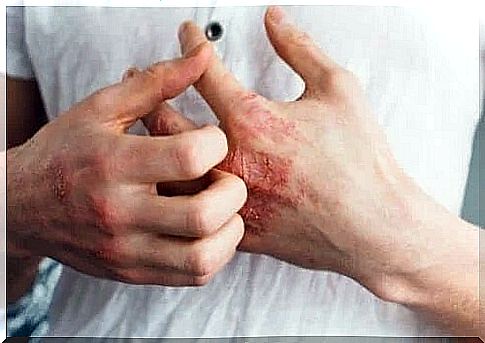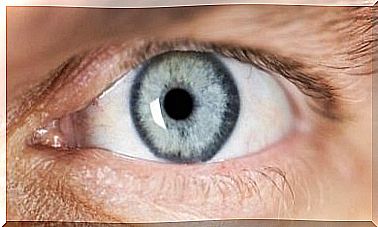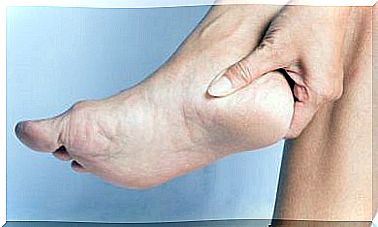How To Sleep Well If You Have Severe Eczema

The symptoms of severe eczema can significantly affect your quality of life. Although the discomfort is reduced with the help of prescription drugs, it is essential to adopt certain beneficial habits. In this article, we will show you how to sleep well if you have severe eczema.
Unfortunately, this skin disease causes problems such as fatigue, drowsiness and insomnia. Due to the discomfort caused by itching, dryness and other clinical manifestations, it is difficult for those suffering from this skin condition to have a restful sleep.
The most worrying thing is that not getting enough sleep can influence the complications of this condition. In fact, in the medium and long term, they can compromise mental health and other issues. What can you do to deal with severe eczema? Read on to find out!
What is eczema?

Eczema, also known as atopic dermatitis, is a skin disease characterized by redness and inflammation. This is accompanied by intense itching, swelling and extremely dry skin, among other inconveniences.
Common types of disease include contact dermatitis, seborrheic and numular. Eczema can affect anyone, but is more common in babies and young children. Although experts do not know the exact cause of it, they believe it is a response of the immune system when it is exposed to irritants.
The disease manifests itself with one or more symptoms on the skin. This often occurs when exposed to triggers, such as:
- Animal hair
Tips for a good night’s sleep if you have severe eczema
A study published in the Journal of Investigative Dermatology found that patients with eczema have a higher risk of fatigue and sleep problems. According to the study, every day, there are numerous medical consultations related to sleep problems associated with severe eczema.
Fortunately, a few simple tips can help you sleep well. Below, we present the most important ones. Put them into practice!
1. Adjust the room temperature

The bedding material can affect your body temperature when you sleep. Therefore, another measure you should consider to alleviate sleep problems caused by severe eczema is changing your bedding. You need to make sure that the bedding you use is made of cotton or bamboo fibers.
Both materials tend to accumulate fewer mites and skin residues, factors that can aggravate the symptoms. In addition, they are easy to wash and dry.
3. Use a moisturizer before bed

Excessive dryness is a factor that aggravates the symptoms of this skin disease. Thus, if the skin is too dry, you are more likely to suffer from severe itching and flaking. It is ideal to apply a moisturizer on the affected areas about 30 minutes before bedtime.
The product you are using must be suitable for sensitive skin or designed to treat eczema. You should completely avoid applying scented creams or lotions, as they can aggravate the symptoms.
Having regular sleep habits can go a long way in controlling insomnia related to severe eczema. Although your symptoms may disturb your rest, you will sleep better if you have a steady bedtime and wake-up routine.
It is also important to practice a bedtime relaxation technique and eliminate distractions from the bedroom, such as televisions, computers, or cell phones, among others.
5. Choose the right pajamas

Due to the characteristic symptoms of the disease, you need to be very careful with the clothes you use to sleep. Rough, synthetic fabrics can cause rashes. Wide, breathable fabrics minimize risk and increase the feeling of comfort.
Do sleep problems persist despite these recommendations? If so, consult your doctor. He may evaluate the possibility of administering other types of treatment.









